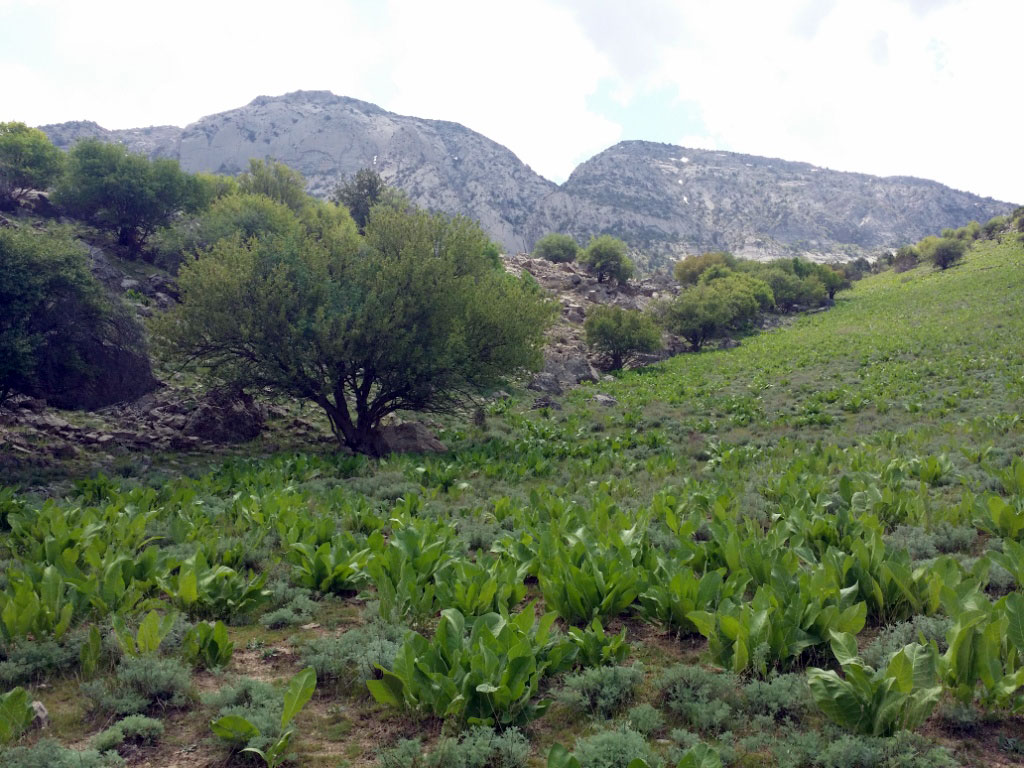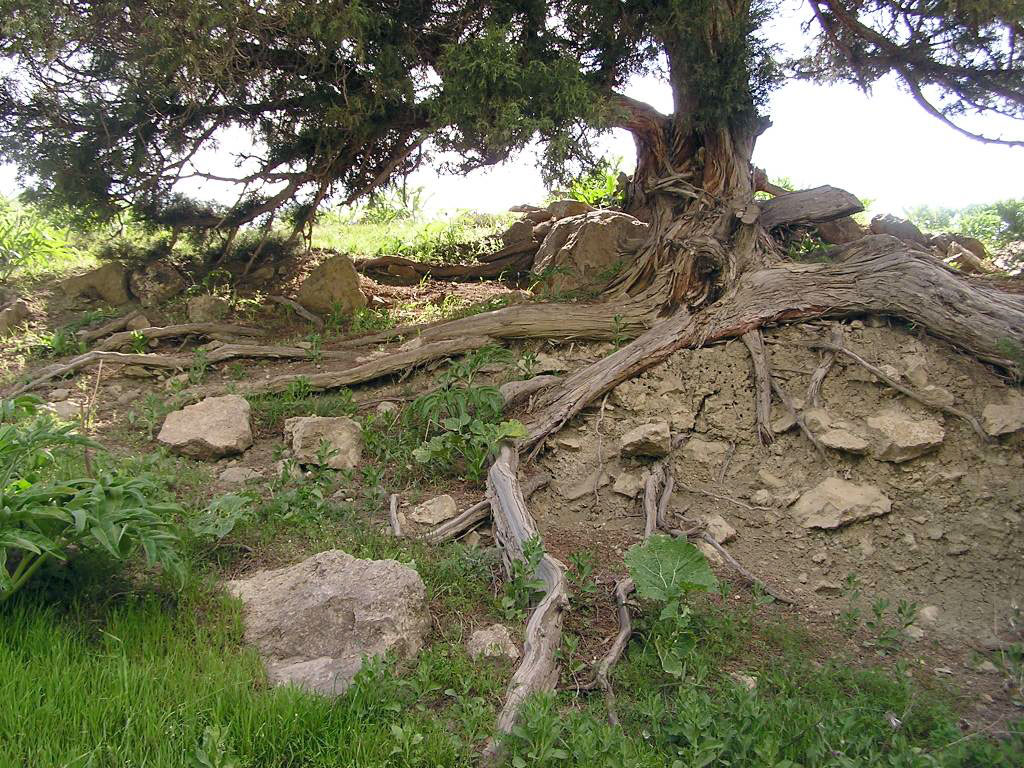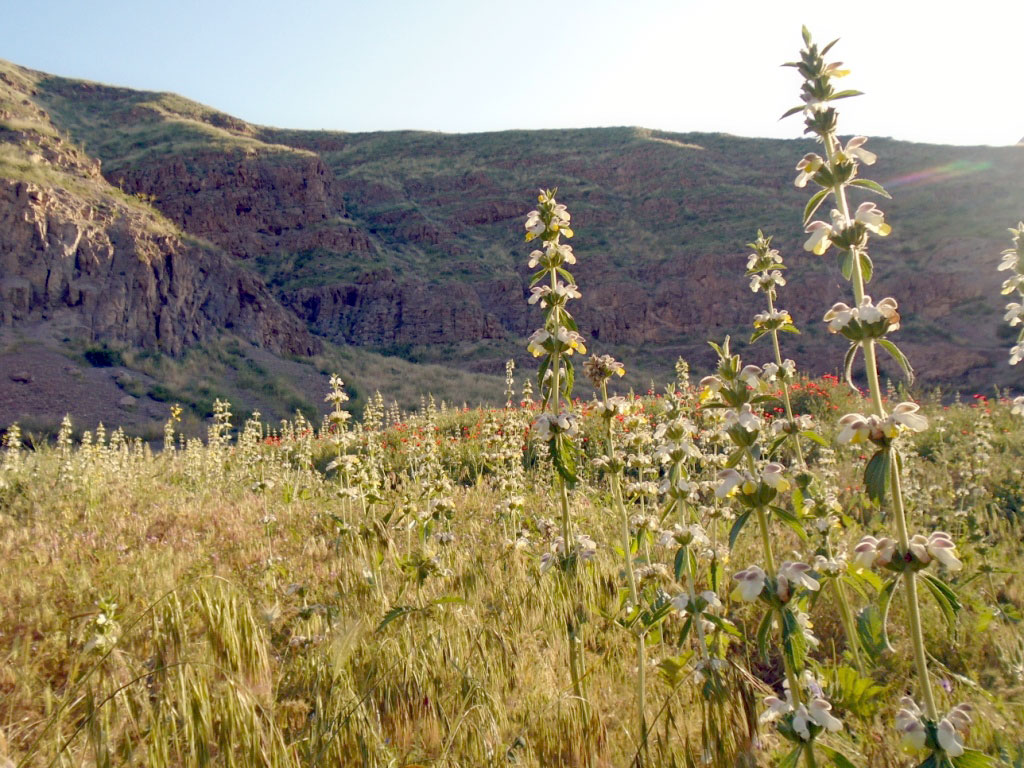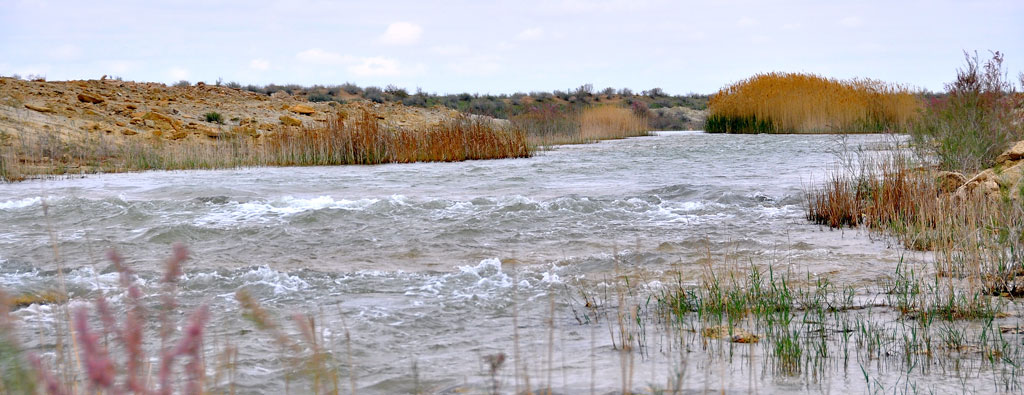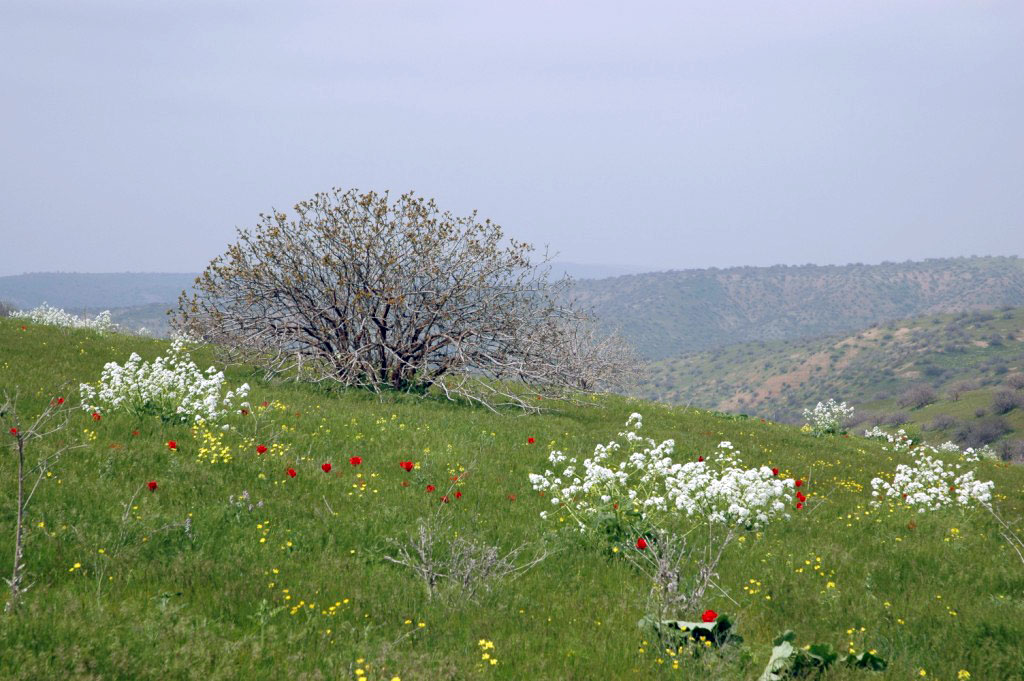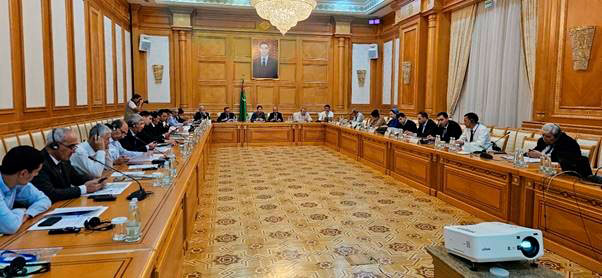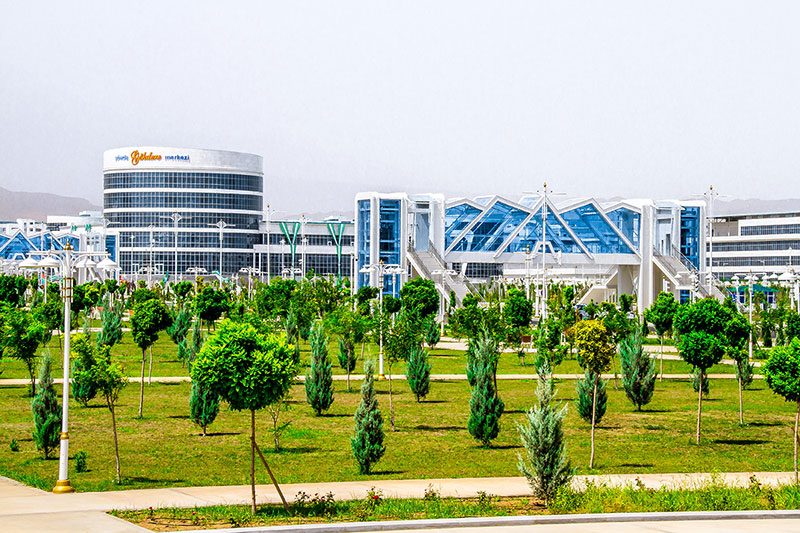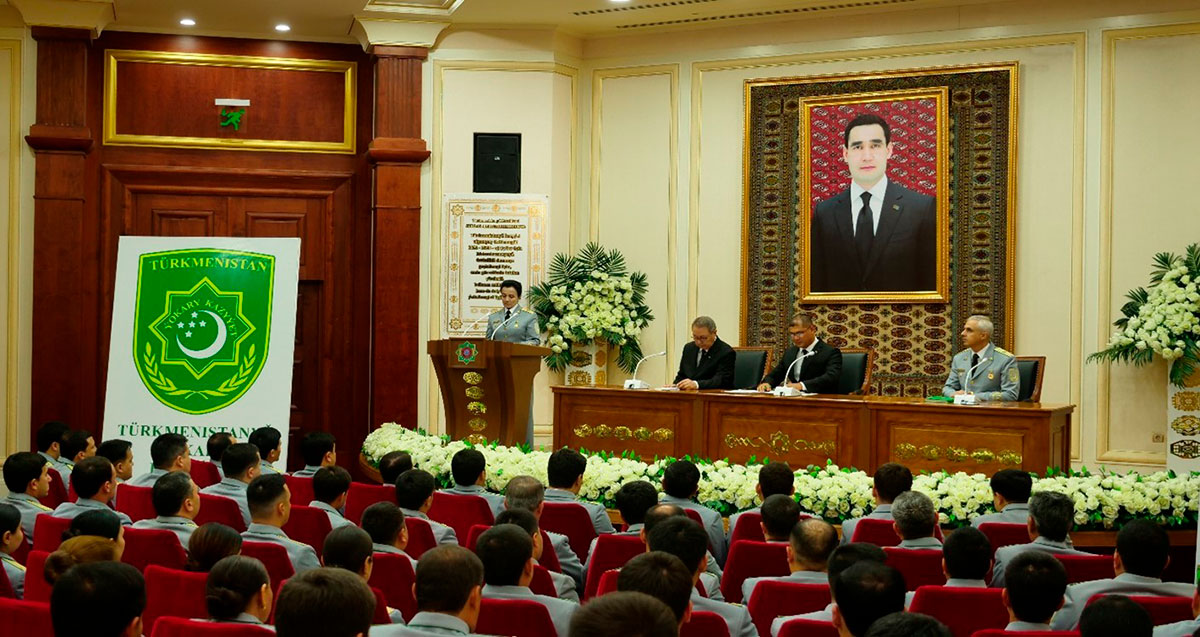The year of 2019 was a jubilee year for the Convention to Combat Desertification. The international document on the prevention and control of desertification was adopted on June 17, 1994, and the global movement for the preservation of the fertility of irrigated areas celebrates its 25th anniversary.
The theme of the 2019 World Day to Combat Desertification and Drought - “Let’s Grow the Future Together” calls for joining efforts to protect the environment and the integrity of ecosystems.
For example, the ecosystems of the Karakum Desert include various components of flora and fauna. The health of the soil, vegetation and waters is an important condition for the viability of such local ecological communities. The term ‘desertification’ does not characterize productive desert territories but economic lands that become useless due to both natural and anthropogenic factors. In this context, the fight against desertification implies the restoration or recultivation of degraded lands, the return of arable lands to productive state, natural pastures to economic turnover, and the improvement of wetland ecosystems.
The National Institute of Deserts, Flora and Fauna is a leader in the Central Asian region in the study and development of deserts. The Institute conducts scientific and practical activities to support environmental initiatives of our country, widen international environmental partnership. A significant part of the scientists’ developments include recommendations for afforestation of mobile dunes, forest management in desert oases, prevention of waterlogging and increase of feed efficiency of pastures.
The Institute has accumulated experience in satellite monitoring of land degradation processes, construction of irrigation networks, modern railways and highways in the desert, cultivation of halophytic plants for soil desalinization and expansion of forage production for livestock population. The sphere of work of the institute includes monitoring of the state of biodiversity and the environment, the development of the scientific foundations of the work of state nature reserves.
Deputy Director of the National Institute of Deserts, Flora and Fauna of the Ministry of Agriculture and Environmental Protection of Turkmenistan, Ph.D. in Biology, Pirli KEPBANOV tells about the importance of countering the processes of desertification:
“Desertification and drought under the climate change and aridization today have become the number one problem for many countries. There is a place in our region that attracts the attention of biologists and climatologists. This is the Aral Sea region. For more than 50 years, the countries of Central Asia have been working in the format of the International Fund for Saving the Aral Sea, which is currently chaired by Turkmenistan, to improve the ecological and socio-economic status of the Aral Sea.
“The adoption of the Resolution “Cooperation between the United Nations and the International Fund for Saving the Aral” at the initiative of the Turkmen leader vividly testifies to the constructive position of our country in solving the Aral problem. The document that provides for the legal basis for interaction between the UN and IFAS, supports the outcome of the Summit of Heads of the Founding States of IFAS, held in the Avaza National Tourist Zone on August 24, 2018 and envisages the possibility of creating a UN Special Program for the Aral Sea countries.
“Another important aspect in the fight against desertification is the inventory of natural and man-made forests in the country. Scientists have developed recommendations for the protection of natural objects, landscaping vacant lands in various soil-climatic zones, tree planting in the desert.
“As is known, Turkmenistan is the leader among the neighboring countries in the number of man-made plantations, in the scale of measures to protect them during the fire-dangerous period, in creating mixed coniferous-deciduous forests in the foothills and in the number of areas occupied by eldar pine. Forest plantations are the most natural and effective help to nature for maintaining biodiversity that only humans can provide. According to the latest data, man-made forests in our country occupy 105,000.00 hectares.
“Another important area of our work is the study of emerging ecosystems within the reservoir system of the Altyn Asyr Turkmen Lake. Such mechanism of water utilization has no analogues, the value of this unique hydraulic structure for our country and the region of Central Asia cannot be overestimated. This is a valuable example of the efficient water resources management and land development. Often visiting these places, conducting geobotanical studies of the Turkmen Lake for many years, I can say that this region of the country has not only a huge socio-economic potential, but is also interesting from the point of view of ecotourism development”.
The theme of the 2019 World Day to Combat Desertification and Drought - “Let’s Grow the Future Together” calls for joining efforts to protect the environment and the integrity of ecosystems.
For example, the ecosystems of the Karakum Desert include various components of flora and fauna. The health of the soil, vegetation and waters is an important condition for the viability of such local ecological communities. The term ‘desertification’ does not characterize productive desert territories but economic lands that become useless due to both natural and anthropogenic factors. In this context, the fight against desertification implies the restoration or recultivation of degraded lands, the return of arable lands to productive state, natural pastures to economic turnover, and the improvement of wetland ecosystems.
The National Institute of Deserts, Flora and Fauna is a leader in the Central Asian region in the study and development of deserts. The Institute conducts scientific and practical activities to support environmental initiatives of our country, widen international environmental partnership. A significant part of the scientists’ developments include recommendations for afforestation of mobile dunes, forest management in desert oases, prevention of waterlogging and increase of feed efficiency of pastures.
The Institute has accumulated experience in satellite monitoring of land degradation processes, construction of irrigation networks, modern railways and highways in the desert, cultivation of halophytic plants for soil desalinization and expansion of forage production for livestock population. The sphere of work of the institute includes monitoring of the state of biodiversity and the environment, the development of the scientific foundations of the work of state nature reserves.
Deputy Director of the National Institute of Deserts, Flora and Fauna of the Ministry of Agriculture and Environmental Protection of Turkmenistan, Ph.D. in Biology, Pirli KEPBANOV tells about the importance of countering the processes of desertification:
“Desertification and drought under the climate change and aridization today have become the number one problem for many countries. There is a place in our region that attracts the attention of biologists and climatologists. This is the Aral Sea region. For more than 50 years, the countries of Central Asia have been working in the format of the International Fund for Saving the Aral Sea, which is currently chaired by Turkmenistan, to improve the ecological and socio-economic status of the Aral Sea.
“The adoption of the Resolution “Cooperation between the United Nations and the International Fund for Saving the Aral” at the initiative of the Turkmen leader vividly testifies to the constructive position of our country in solving the Aral problem. The document that provides for the legal basis for interaction between the UN and IFAS, supports the outcome of the Summit of Heads of the Founding States of IFAS, held in the Avaza National Tourist Zone on August 24, 2018 and envisages the possibility of creating a UN Special Program for the Aral Sea countries.
“Another important aspect in the fight against desertification is the inventory of natural and man-made forests in the country. Scientists have developed recommendations for the protection of natural objects, landscaping vacant lands in various soil-climatic zones, tree planting in the desert.
“As is known, Turkmenistan is the leader among the neighboring countries in the number of man-made plantations, in the scale of measures to protect them during the fire-dangerous period, in creating mixed coniferous-deciduous forests in the foothills and in the number of areas occupied by eldar pine. Forest plantations are the most natural and effective help to nature for maintaining biodiversity that only humans can provide. According to the latest data, man-made forests in our country occupy 105,000.00 hectares.
“Another important area of our work is the study of emerging ecosystems within the reservoir system of the Altyn Asyr Turkmen Lake. Such mechanism of water utilization has no analogues, the value of this unique hydraulic structure for our country and the region of Central Asia cannot be overestimated. This is a valuable example of the efficient water resources management and land development. Often visiting these places, conducting geobotanical studies of the Turkmen Lake for many years, I can say that this region of the country has not only a huge socio-economic potential, but is also interesting from the point of view of ecotourism development”.




